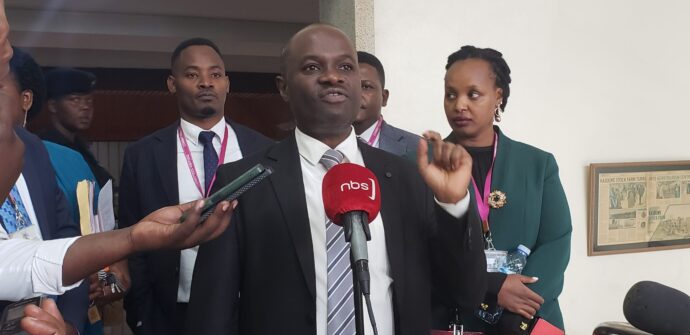
Government Pledges Salary Enhancements and Support for Local Leaders to Improve Service Delivery.
By Solomon Lubambula
The Ugandan government has reaffirmed its commitment to addressing challenges facing local government leaders, aiming to strengthen service delivery across the country.
President Yoweri Kaguta Museveni has directed salary enhancements for local government political leaders, a move disclosed by Local Government Minister Raphael Magyezi during a parliamentary session.
Magyezi’s remarks followed a petition from the Uganda Local Government Association (ULGA) and the Urban Authorities Association of Uganda (UAAU), presented to Parliament by Buyanja MP Emely Kugonza on behalf of ULGA President Andrew Awany.
The petition outlined ten pressing issues undermining service delivery: poor induction of leaders, inadequate pay, staffing shortages, transportation difficulties, neglected road maintenance, weak planning, revenue mismanagement, and delayed LC I and II elections. The petitioners argued that these gaps have contributed to declining services for citizens.
Acknowledging the concerns, Magyezi admitted that local leaders are poorly remunerated and under-facilitated.
He noted that the lowest-paid officials, LC1 chairpersons, currently earn only 10,000 shillings per month. To address this, Museveni has ordered a salary increment effective in the 2026–2027 financial year.
The proposal was already presented to Cabinet and is under consideration. Magyezi praised local leaders for their patience and dedication despite financial constraints, promising to update the public once Cabinet finalizes the measures.
To further ease operational challenges, Magyezi announced that the government has procured brand-new Toyota double-cabin pickups for all district chairpersons, city mayors, and municipal mayors.
These vehicles, worth 35.2 billion shillings from a supplementary budget, are expected to improve mobility and oversight of local projects.
The first batch of 90 pickups will arrive by the end of September 2025, with the remainder delivered no later than November 15, 2025.
The Local Governments Act mandates transport facilitation for these leaders, which Magyezi said is critical for effective governance.
Regarding long-delayed LC I and II elections, Magyezi revealed that the government has synchronized local council polls with the general elections to save costs and ensure consistency. The next LC elections will therefore follow the 2026 presidential, parliamentary, LC5, and LC3 elections.
Budget allocations for these polls have been included in the Electoral Commission’s funding. Magyezi admitted that repeatedly extending the terms of local councils due to financial shortages was problematic and emphasized that this alignment will permanently address the issue.
While acknowledging the petition’s concerns, Magyezi countered claims of worsening service delivery.
He cited an annual assessment by the Office of the Prime Minister showing significant improvements in local government performance.
He credited programs like the Uganda Intergovernmental Fiscal Transfers (UGIFT), Uganda Support to Municipal Infrastructure Development (USMID), Parish Development Model (PDM), Emyooga, and the Social Assistance Grants for Empowerment (SAGE) for boosting livelihoods and services.
For example, Magyezi noted that the percentage of Ugandan households living in subsistence farming has dropped from 40% to 33%, according to Uganda Bureau of Statistics data, partly due to these local government-led initiatives.
Speaker of Parliament Anita Among urged the minister to use the petition as a catalyst to address broader challenges.
She highlighted gaps in infrastructure, especially poor road conditions, and shortages of medical professionals in hospitals as urgent priorities.
Among stressed that improved service delivery depends on comprehensive government action to resolve these systemic weaknesses.
The government’s pledges—salary increases, transportation support, and harmonized elections—signal an effort to strengthen local governance and restore confidence among local leaders.
By addressing these long-standing issues, the government hopes to accelerate development programs and enhance essential services for citizens across Uganda.




